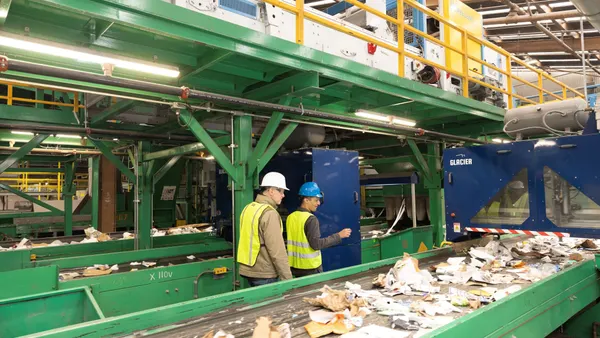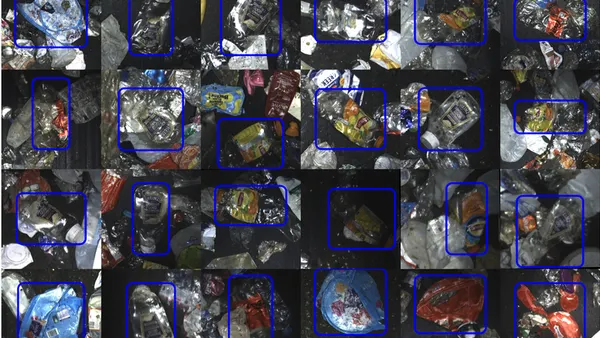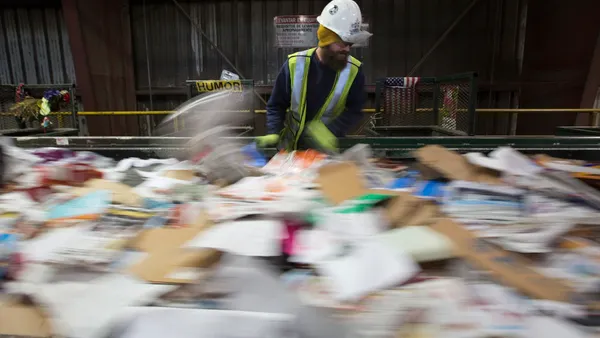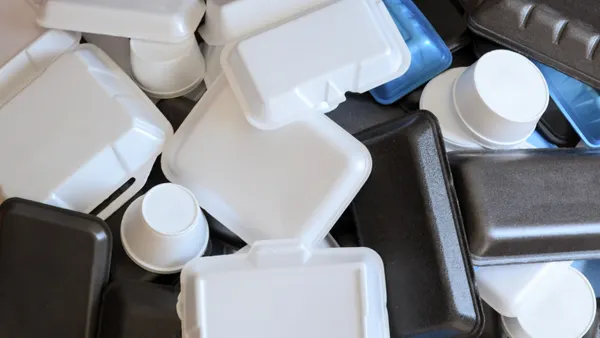Dive Brief:
- The Carolinas Plastics Recycling Council is launching a new campaign called "Your Bottle Means Jobs" to increase recycling participation and generate more feedstock for the regional plastics industry, as reported by Plastics Recycling Update.
- The estimated 2 million residents of North Carolina's Raleigh-Durham area will be the target audience. Starting in the spring, billboards, radio announcements, online ads and public events will encourage people to recycle two more plastic bottles per week. At the end of the campaign, progress will be measured by looking at plastic bottle recycling data from a local material recovery facility.
- According to the council, if every resident in the Carolinas recycled two more bottles per week, that could potentially lead to $10 million in economic benefits and create 300 jobs. This is based on an average $47 per ton disposal cost and $270 per ton market value.
Dive Insight:
The council estimates that 150,000 tons of plastic bottles are discarded in the two states each year. Because of this, about 75% of the bottles used as manufacturing feedstock in the Carolinas are imported. According to the council, 1,700 people are currently employed by the region's plastics manufacturing industry and sourcing more material locally could expand job opportunities.
The $65,000 campaign has raised most of its necessary funding so far, drawing on a range of the usual industry sponsors. The Plastics Industry Association, American Chemistry Council, Association of Plastic Recyclers, Institute of Scrap Recycling Industries, Waste Management and many other local entities are all supporting the initiative.
As seen with the recent opening of Unifi's two Repreve facilities in North Carolina plastic bottles play a key role in local manufacturing. Products such as carpeting, clothing, textiles, pipes, lumber and new bottles are all made in the region. Based on the latest Environmental Protection Agency analysis, recycling and reuse activities account for at least 757,000 jobs on a national level. This type of argument could be a valuable approach in areas that have stagnant recycling rates and are in need of a boost to their local economies.










